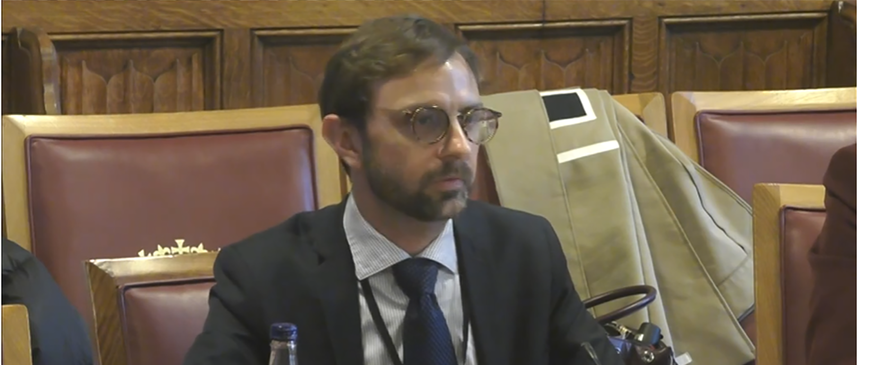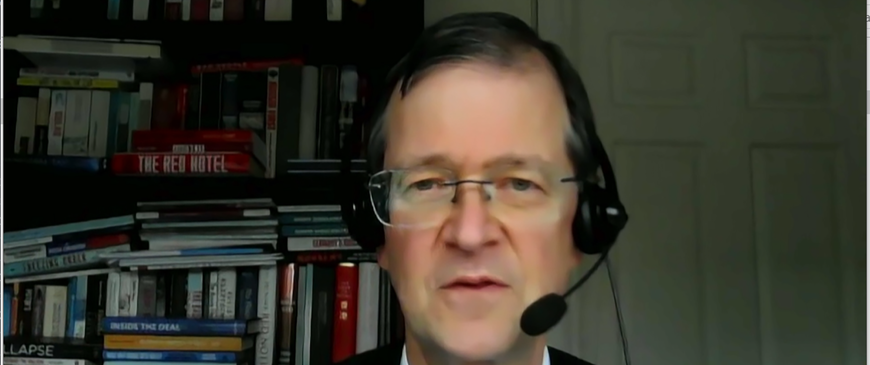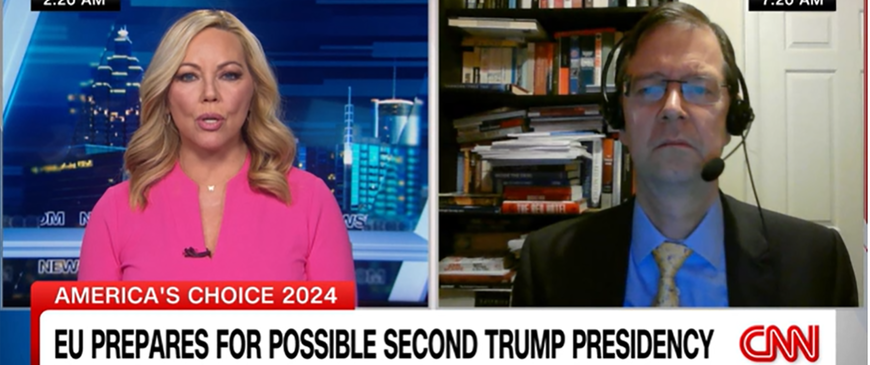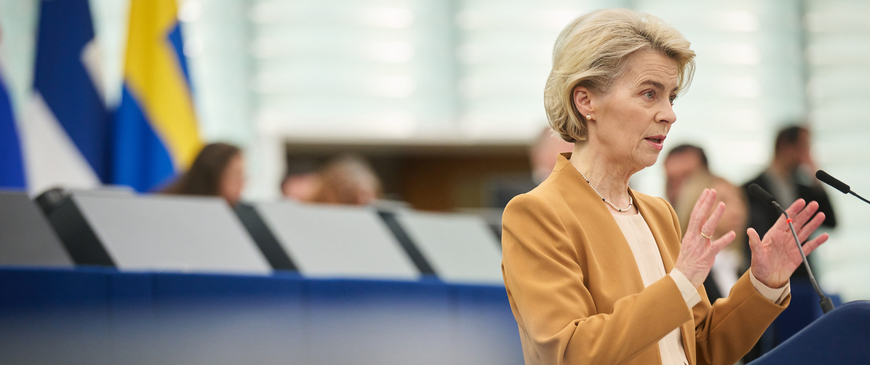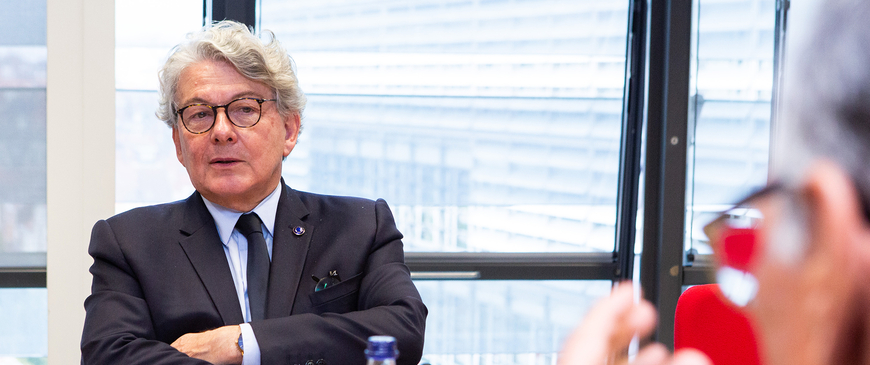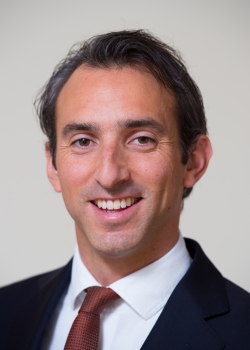Press
Was treibt den Briten-Premier zur Rein-Raus-Abstimmung?
23 January 2013
Bild Zeitung
As a former global power, London is used to setting its own agenda instead of laboriously searching for compromise. "London tends to think more global than European", says Katinka Barysch from the CER in London. The fear that Southern European countries could drag Britain even more deeply into the crisis is creating further aversions.
Europe is edgy as Briton seeks to loosen ties
23 January 2013
The New York Times
After being consumed for so long by efforts to salvage the euro zone, "leaders now think it is safe and are becoming perhaps too complacent," said Charles Grant, director of the CER. "The only time European leaders have agreed to take important steps is when there is a crisis. As soon as the crisis stops they relax."
The German elections and the eurozone crisis
23 January 2013
Reuters
Katinka Barysch is interviewed from Davos to discuss the German elections, the on going eurozone crisis and David Cameron's speech on the EU.
European summits not an ideal decision-making method
22 January 2013
The New York Times
"Leaders have ended up doing much of the heavy lifting in the crisis because it really comes down to them to decide whether to commit their taxpayers to spend what it takes to save the euro," said Hugo Brady, a senior research fellow at the CER in London.
Can Britain forge looser ties to Europe without losing influence?
22 January 2013
The New York Times
Charles Grant, director of the CER, says that already "British influence in Brussels is at its lowest level in the 25 years I have been following the EU." ..."I think Britain still could have clout in more limited areas if it keeps friends and allies," Mr Grant said.
Cameron's mixed signals befuddle Britons
22 January 2013
The Globe and Mail
Mr Cameron "is gearing up for what I would call sort of a counter-terrorism-light approach," said Rem Korteweg, a senior research fellow at the CER. "And the 'light' part means that there's going to be support given to the [African] mission and that will be in the form of special forces that help the mission to achieve its objectives and providing surveillance capabilities.
Obama's second term: The world waits
21 January 2013
Financial Times
The Europeans welcome Mr Obama's wariness about using force to prevent Iran from developing nuclear weapons and strongly support his efforts to intensify pressure on Iran’s leaders through economic sanctions. “Most EU governments have long worried that attacking Iran would destabilise the region,” says Clara Marina O’Donnell of the CER.
Britain becomes Germany's biggest trade partner as Berlin-London pact deepens
21 January 2013
The Telegraph
Charles Grant director of the CER, said Mrs Merkel will "bend over backwards" to help Britain by offering safeguards for the City and backing for market reforms, but only up to a point. "They will not agree to repatriate powers or let the UK cherry pick which parts of the EU they want to belong to," he said, warning the Tories not to overplay their hand.
The vulnerability of elites: Geopolitical risk in 2013
21 January 2013
Global Agenda Council
Categorising the major themes, risks, opportunities, and wild cards—based on discussions of the Global Agenda Council on Geopolitical Risk in Dubai, November 2012.
GAC members: Ahn Ho-Young, Katinka Barysch, Ian Bremmer (GAC chair), John Chipman, Tina Fordham, Sumit Ganguly, Jin Canrong, Wadah Khanfar, Nader Mousavizadeh, Moisés Naím, Yoshiji Nogami, Volker Perthes, Douglas A....
GAC members: Ahn Ho-Young, Katinka Barysch, Ian Bremmer (GAC chair), John Chipman, Tina Fordham, Sumit Ganguly, Jin Canrong, Wadah Khanfar, Nader Mousavizadeh, Moisés Naím, Yoshiji Nogami, Volker Perthes, Douglas A....
The 'lost generation' that never was
21 January 2013
Presseurop
"We should be copying their vocational training system. Young people's employment prospects depend partly on themselves and on whether they are able to adapt their plans to market realities", said Katinka Barysch at the CER in London.
Europe brightens, to investors anyway
18 January 2013
The Wall Street Journal
"Persistently weak economies in Spain and Italy will push up public debts as a proportion of GDP, as well as bad loans at banks", says Simon Tilford, chief economist at the CER, a London think-tank. "Ultimately the debt problem is being made bigger" by Europe's lack of growth, he says.
UE: l’Algérie fait reculer Cameron
17 January 2013
Liberation
"Cameron agit avant tout tactiquement sur le plan domestique. Ce qui l’intéresse, c’est son parti et les électeurs. C’est sa priorité […] Il ne s’intéresse pas à la politique internationale," explique Charles Grant, directeur du think-tank CER.
France faces prolonged conflict in Mali
15 January 2013
The Globe and Mail
Mali is not the same as the French mission under NATO auspices in Afghanistan, which Mr Hollande is pushing to end quickly, said Rem Korteweg, of the CER."We have to look at the [region] as basically France’s backyard – at least that's the way they tend to like to see it.
Slowdown in Germany worries eurozone
15 January 2013
The New York Times
"This idea that Germany is a powerhouse dragging the rest of Europe along with it is a bit of a myth to be honest," said Philip Whyte, a senior research fellow at the CER in London. "You have a very weak periphery and a core which is not as strong as everyone seems to believe."
"Brexit" et le sermon d'Oncle Sam
14 January 2013
Le Monde
"L'Allemagne dirigerait la politique économique et la France, la politique de sécurité, nous dit Charles Grant, du CER à Londres. Les Etats-Unis auraient moins d'influence en Europe, et la politique de l'UE aurait plus de chances de diverger de celle des Etats-Unis."
Brytyjski premier ma plan, jak uniknąć wyjścia z Unii
14 January 2013
Gazeta Wyborcza
Założenia planu Camerona są jednak dość wątpliwe. - Inne kraje Unii nie zgodzą się na nowe wyjątki w traktatach UE dla Londynu. To zwiększałoby konkurencyjną przewagę Brytyjczyków na jednolitym rynku unijnym - przekonuje Charles Grant z londyńskiego CER.
Could Britain end up leaving the EU? The key questions
11 January 2013
Channel 4 News
Charles Grant, director of the CER argues that EU governments will not grant treaty opt-outs to Britain because of fears that it could gain "an unfair competitive advantage" within the single market and encourage other countries to follow Britain's pick-and-mix example.
UK government battles to cut deficit
08 January 2013
Marketplace
Simon Tilford of the CER says it's the government's fault for talking tough and denting confidence. "The language they've adopted: 'We must cut. We must rein in spending. We must accept lower living standards.' This has unsettled both consumers and companies," claims Tilford.
The threat to the euro is over: EU chief Barroso claims single currency will not implode
07 January 2013
The Daily Mail
"The consequences are likely to be far-reaching. Not only will governments struggle to push through the needed reforms, but there is a risk of a broader backlash against the market economy and the European Union," said Simon Tilford, chief economist at the CER.
Why Cameron will say all the wrong things on the EU
03 January 2013
The Huffington Post
In an article in the FT, Charles Grant of the CER wrote of a multi-tier Europe and said: "Life in the third tier need not be uncomfortable for the UK. If it makes an effort to win friends and allies among its partners, including those in the euro, it will have an influential voice in EU decision-making."

